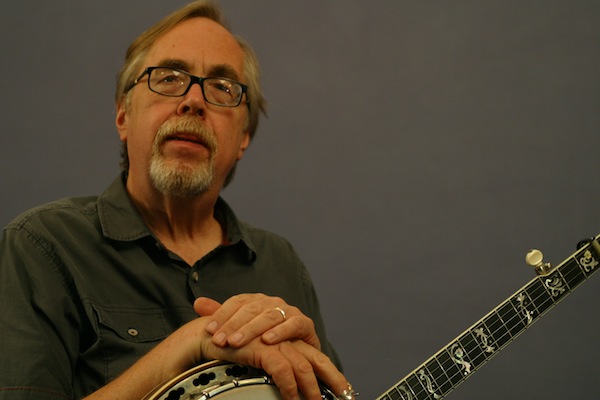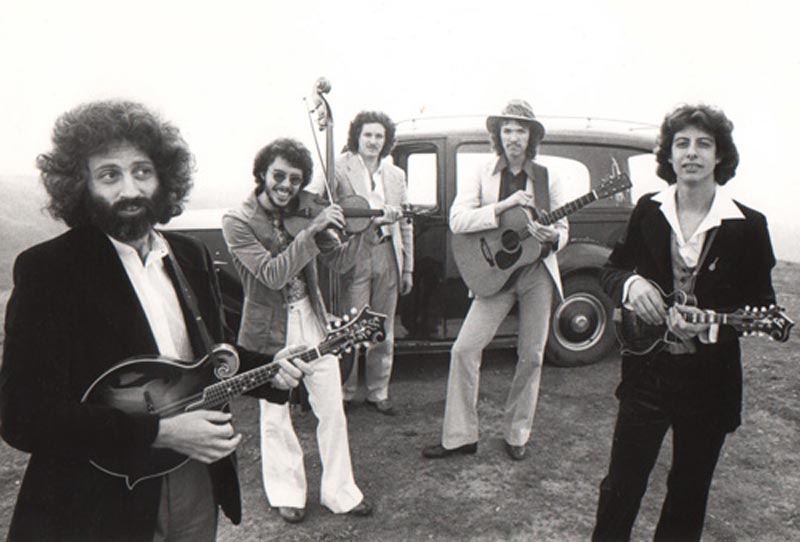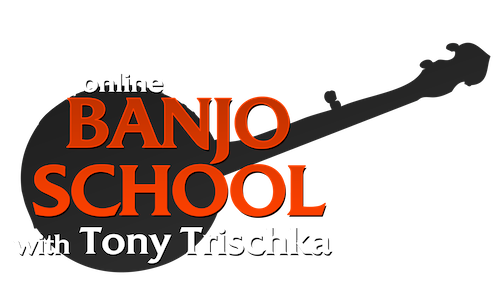Talking Banjo with Tony Trischka: Part 2
 Getting back to our interview with Tony Trischka. If you'll recall from Talking Banjo with Tony Trischka Part 1, Tony was telling us about the banjo scene in the Czech Republic and his recent trip there. In Part 2 we ask Tony more about the new banjo lessons he's recording for his students, meeting Mike Marshall [who teaches mandolin online at ArtistWorks], his new album, and more!
Getting back to our interview with Tony Trischka. If you'll recall from Talking Banjo with Tony Trischka Part 1, Tony was telling us about the banjo scene in the Czech Republic and his recent trip there. In Part 2 we ask Tony more about the new banjo lessons he's recording for his students, meeting Mike Marshall [who teaches mandolin online at ArtistWorks], his new album, and more!
AW: Ok, so getting back to some fundamentals, is there a standard banjo tuning?
Tony: In Bluegrass, the standard banjo tuning is G. So going from the 5th string (the short string) to the 1st string is G, D, G, B, D. But then there are other banjo tunings that are less common, I think people just hate to retune. Especially since Bluegrass is more of a performance kind of thing, you have like 30 seconds in between each tune before the band leader kicks off the next tune…
AW: It's not like you have your assistant swapping out banjos in between songs.
Tony: [laughs] Yeah, no that doesn't happen in the Bluegrass world. It's like "Ok boys we're gonna do this. Here we go!" If you're going into different banjo tunings it's going to take you a minute or so to really get in tune. So, you just stay in G tuning. But once in a while Earl Scruggs recorded in Drop C Tuning, where the 4th string goes down to C, which would be: G, C, G, B, D.
AW: Having been on the forefront of banjo music for a long time now, I'm sure you've experimented with some interesting banjo tunings.
Tony: Yeah, I've experimented with all kinds of crazy banjo tunings. On my first album I had one banjo tuning - I had this random thought, "well I'll take the 1st, 3rd, and 5th strings and tune them down half a step." So I did that and then wrote a tune based on that. I wrote another tune called "Kentucky Bullfight" where I tuned the 1st string down whole step from D down to C. So from the short 5th string it was G, B, G, B, C… I wanted to see what that was like, and I came up with an interesting sound on that. So it is fun to experiment with different banjo tunings. In my new banjo lessons I'm recording this week, I did some tunes in D Tuning, "Reuben's Train" for example is in a D Banjo Tuning. And there are a lot more banjo tunings that are used in a lot in old time banjo music as opposed to Bluegrass.
Watch Tony's Free Banjo Lessons |
AW: So you've been in our studio recording some new banjo lessons for your students, you mentioned one on "Reuben's Train", what other kinds of banjo lessons are you recording in there?
Tony: For the new banjo lessons for my students, we're working on "Bill Cheatem", a classic, great old fiddle tune; "Michael Row the Boat Ashore", which is a standard folk song but I do it in the key of D, with the 5th string up to A, playing the entire melody on the 2nd string; and then I'm talking about Hand Positions, Right and Left Hand positions; playing in E without a Capo, we're doing "Boil Them Cabbage Down" and "Sourwood Mountain" in E without a capo, which gives you some interesting sounds. And I'm doing a bunch of other things too.
AW: And now it looks like we got Mike Marshall in the building, what do you have planned for him?
Tony: He's going to cook me a great, ten-course, Italian pasta dinner tonight, that's what I'm hoping for at least. [chuckles] No, we're going to just jam out on some tunes and have some fun in the studio playing. And he's also going to record some backing tracks for my students for some of these new tunes that I'm doing, so they have something to play against in the background.
AW: Can you remember when you first met Mike Marshall?
Tony: [Big exhale] Um… late 70s when he was playing with David Grisman. I think that's when I first met him in person and heard him, he might remember this better than I do but it was around that time. I was just floored… like "man, that guy's good. How'd he get to play the mandolin so well?". Because Grisman, with his first Quintet, had two mandolins in the band: you got him and a guy named Todd Phillips, and then Mike took over playing mandolin, I guess some guitar too. So I guess it was around the late 70s.

AW: And then Todd Phillips ended up playing bass right?
Tony: Yes, what a great bass player Todd Phillips is. I have a new album coming out in the next 4-7 months and I got Todd Phillips to play bass on one of the tunes, which is great.
AW: So tell us about this new album, what can we expect? Do you have a title for it yet?
Tony: Yes, the album is titled "Great Big World". I was searching around for a title and Bela Fleck came up with "Great Big World", so that's going to be the title of it. And it's got all sorts of stuff - it's got Bluegrass, it's got Classical, it's got a Sacred Steel kind of a sound with steel guitar, and just a whole bunch of different things.
AW: A lot of different instruments?
Tony: Mostly a lot of Bluegrass instrumentation, except on the Sacred Steel one. I got my son Sean playing drums on that.
AW: Is this the first time you're collaborating with him on a record?
Tony: Yeah, I was really excited about that. He's a great drummer, and I had Oteil Burbridge - bass player with the Allman Brothers - playing bass on that, so it was kind of trial by fire, but Sean rose to the occasion. So that was really fun, and I then just recorded a new tune for the opening track, a new Bluegrass tune that I wrote, and I have my son playing mandolin on that one. And he also did a really great job on that, of course I'm kind of biased in his direction, but I think he's got a great chop and he played wonderfully.
I've taken to writing a lot more lyrics now, so I wrote some lyrics for that new tune. I'd say more than half the tunes have lyrics, a bunch written by myself. It's fun because I like to write, I've written instruction books, and if you can write an instruction book you can write a lyric, right?
AW: And do you sing too?
Tony: No! Please, I wouldn't foist that on anybody.
AW: So when can we expect it to come out?
Tony: It's really hard to say, between 3 to 6 months is probably realistic. And I got Steve Martin to play banjo on one song, we co-wrote the song. And then the actor John Goodman does a voice-over, spoken word thing over a song I wrote about Wild Bill Hickock. So he reads this Help Wanted poster from the 1870s… One about the town of Abilene, Kansas wants a new marshall... so I had John read that - he's got that voice that can't be beat, that resonate deep voice. So I'm really excited about this new album coming out.
AW: Us too! Thanks Tony, looking forward to checking out the new banjo lessons!
###







